Introduction
In the quest for weight loss, many turn to rigorous exercise regimes and strict diets. However, yoga offers a holistic alternative that not only aids in shedding pounds but also enhances overall well-being. Through a blend of physical fitness, mindfulness, and emotional support, yoga fosters a balanced and harmonious lifestyle.
This article delves into the myriad benefits of yoga for weight loss, exploring various styles and poses, and highlighting how incorporating yoga into your routine can lead to sustainable results. Discover how yoga's stress-reducing properties, muscle-building potential, and metabolic benefits can transform your approach to weight management, making it a rewarding journey towards better health.
Benefits of Yoga for Weight Loss
Yoga offers a holistic approach to weight loss by enhancing physical fitness, promoting mindfulness, and supporting emotional well-being. Research has indicated that this practice can greatly enhance multiple health areas, such as cardiovascular performance, respiratory capability, and metabolic well-being. Engaging in this practice aids in burning calories and toning muscles, while its focus on conscious movement and breath regulation enhances metabolism, allowing the body to use energy more effectively. Furthermore, the practice's stress-reducing effects are profound, lowering cortisol levels and promoting a sense of calm. This is vital, as stress is often associated with an increase in mass. By incorporating stretching practices into your fitness journey, you not only strive for a sculpted physique but also nurture a stronger bond between your body and mind, promoting a balanced and harmonious way of living.
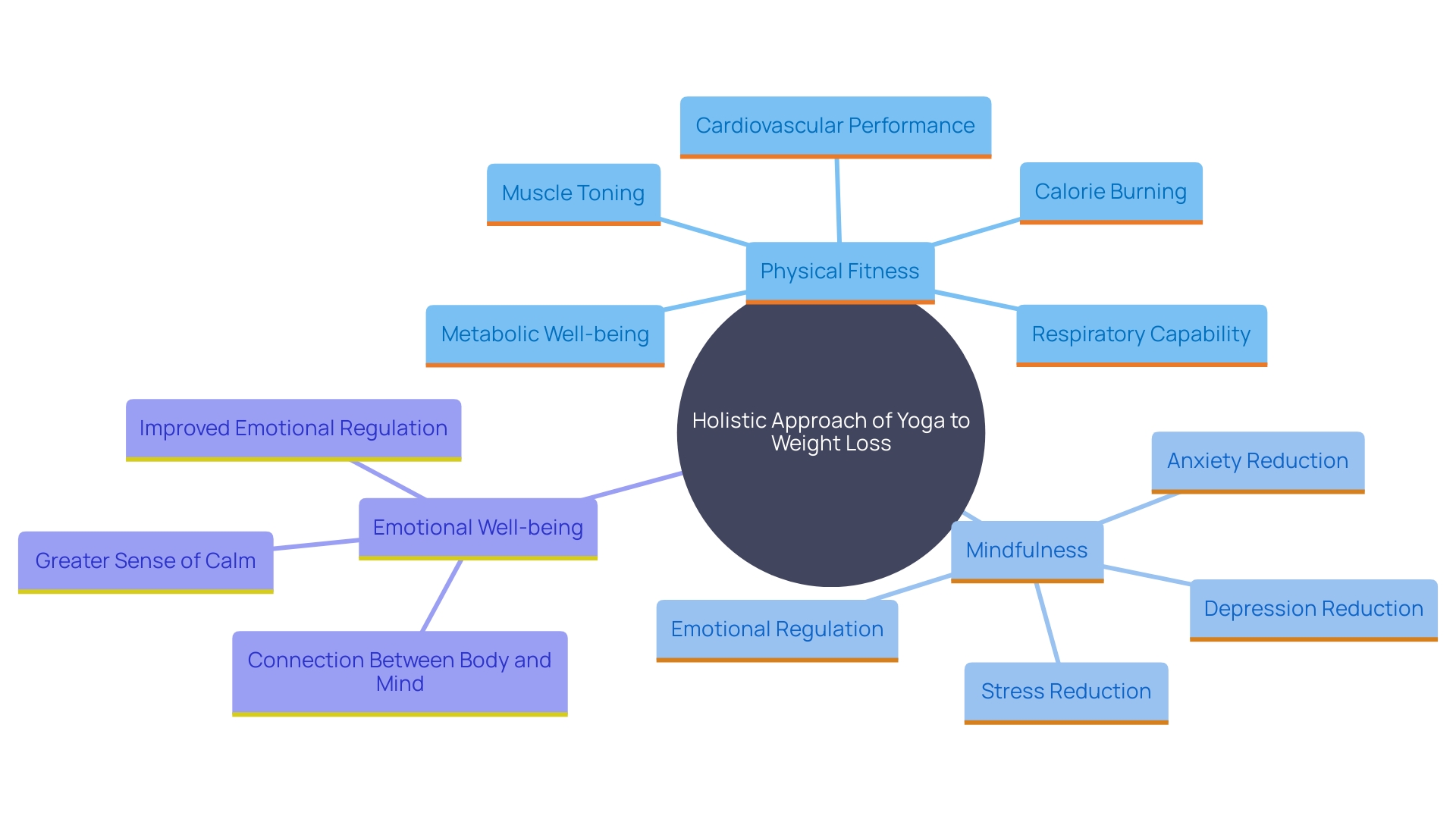
Types of Yoga for Weight Loss
Investigating various forms of exercise can be especially beneficial for shedding pounds and enhancing general health. Vinyasa Yoga, known for its flowing movements and connection with breath, offers cardiovascular benefits and helps reduce cortisol levels, promoting a sense of calm and improved emotional regulation. Power Yoga, a more intense variation, further amplifies these benefits by incorporating dynamic sequences that challenge both strength and endurance. Hatha Yoga, the oldest traditional practice, balances gentle stretches with strength-building poses, enhancing mindfulness and flexibility. Ashtanga Yoga provides a rigorous workout, fostering discipline and mental resilience. Including a range of these styles not only makes your practice interesting but also enhances the physical and mental health advantages, such as reduced stress, improved strength, and better flexibility.
Key Yoga Poses for Weight Loss
Certain yoga poses can specifically target the core, enhancing both physical fitness and overall wellness. Poses such as Plank, Boat Pose, and Warrior III are particularly effective in strengthening the abdominal muscles while also improving balance and stability. Incorporating twists like the Twisted Chair Pose can further enhance digestion and detoxification, supporting weight management efforts. This holistic approach not only helps in achieving a toned midsection but also promotes better body composition.
Evidence supports that practicing this discipline can significantly reduce pain and improve quality of life. For example, research has indicated that individuals involved in this practice experience almost double the pain alleviation in comparison to those participating in conventional workouts. Furthermore, this practice is recognized for its ability to manage stress and enhance mental health, making it an excellent choice for comprehensive well-being.
By practicing this physical discipline regularly, individuals can achieve a stronger core, better posture, and an enhanced sense of mindfulness, which collectively contribute to a healthier and more balanced lifestyle.
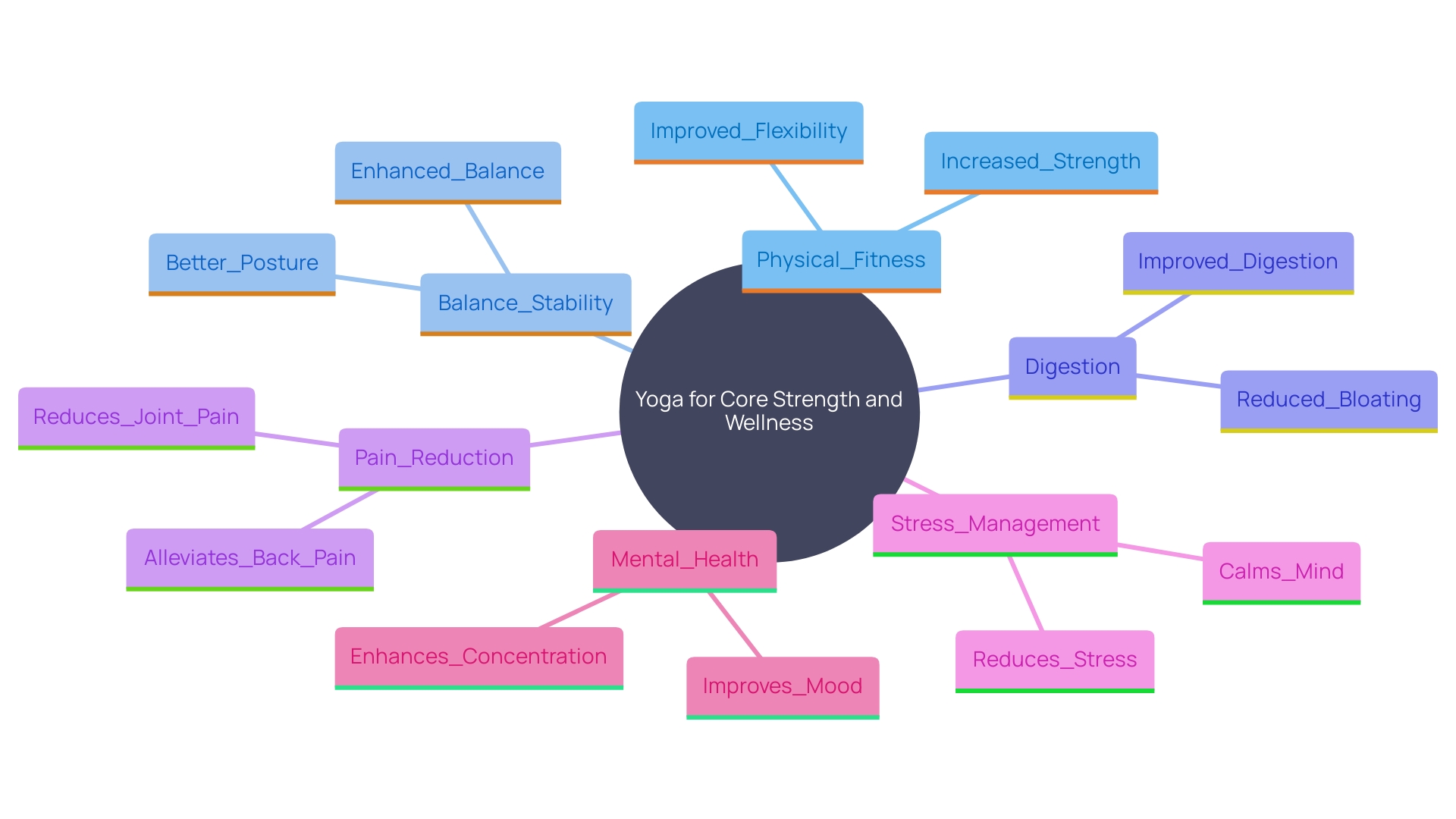
How Yoga Aids in Weight Loss
Yoga plays a transformative role in weight loss by fostering a deeper connection between body and mind. This enhanced mindfulness encourages healthier eating habits and better lifestyle choices, as individuals become more attuned to their body's needs. Research has shown that the practice's focus on breath and movement significantly improves self-awareness, which can be crucial in maintaining a balanced relationship with food. Furthermore, the practice's stress-reducing benefits are well-documented, aiding in the mitigation of emotional eating. A 2023 review and meta-analysis of 34 studies highlighted the beneficial impacts of this practice on depression and anxiety, conditions often linked to stress-related eating habits. By reducing stress, anxiety, and depression, this practice helps practitioners achieve a more balanced and harmonious lifestyle. This comprehensive method not only promotes physical well-being but also improves overall wellness, making this practice a powerful instrument for sustainable body management. Studies also indicate that practicing this discipline can enhance cardiovascular and respiratory function, which are essential for maintaining a healthy weight. In today's fast-paced world, incorporating this practice into daily routines can lead to profound improvements in both mental and physical health, promoting long-term wellness.
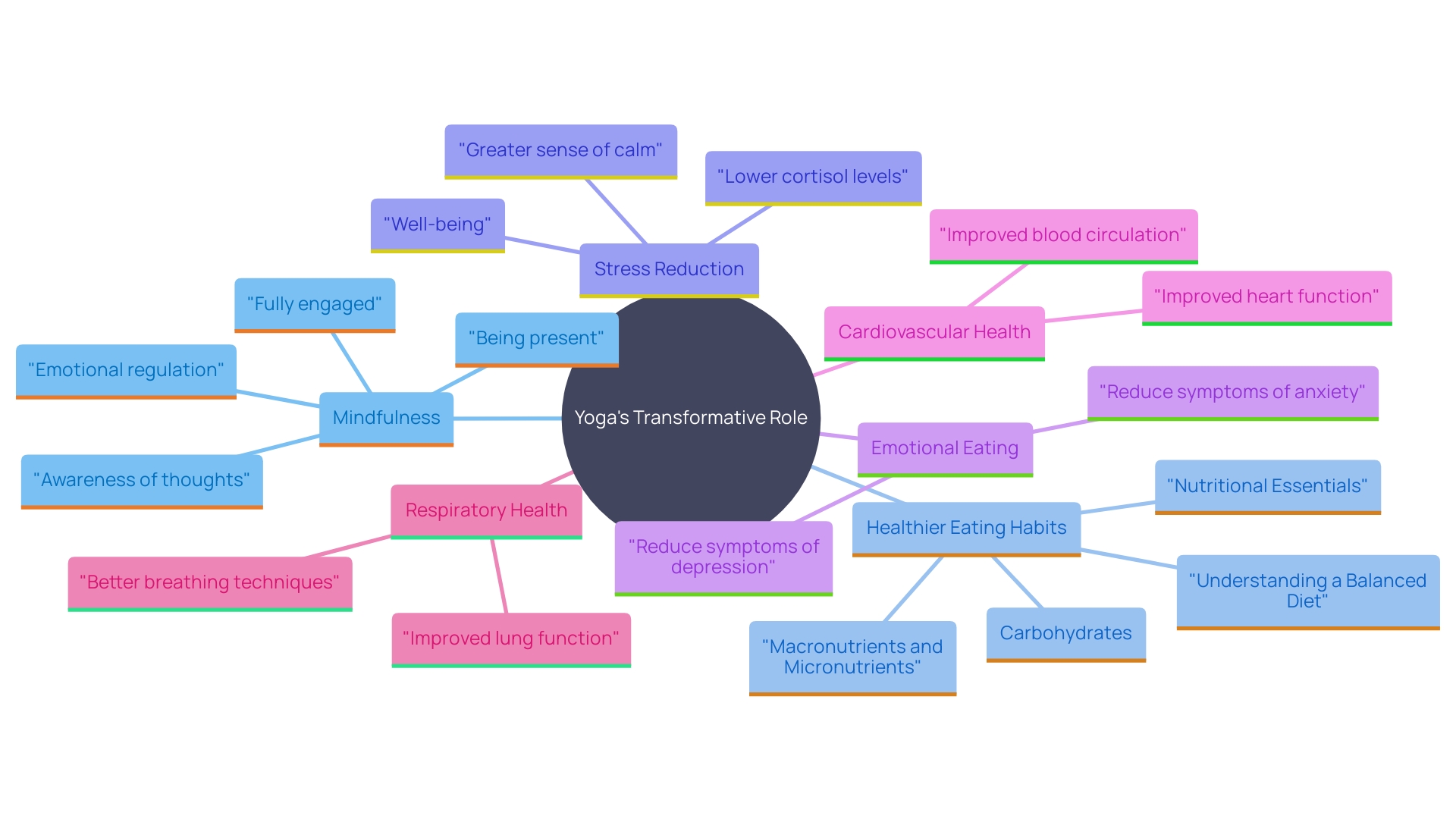
Physical Activity and Calorie Burn
While this practice may not burn as many calories as high-intensity workouts, it significantly contributes to overall physical activity levels. The combination of strength, flexibility, and endurance training in this practice can result in significant calorie burn, especially in more intense styles. Consistent practice of this discipline not only boosts lean tissue growth but also raises the resting metabolic rate, which aids in continuous weight loss endeavors. According to a systematic review of 25 trials involving 2,170 participants, those who engaged in the practice experienced improved lipid levels, better glycemic control, and reduced oxidative stress and blood pressure. These benefits are likely linked to the increased muscle mass and enhanced metabolic function that this practice promotes. Furthermore, this practice has been demonstrated to improve exercise capacity and lung function, with a meta-analysis of five randomized controlled trials indicating significant enhancements in forced expiratory volume and walking distance. These findings highlight the extensive health advantages of this practice, making it a beneficial element of any fitness routine focused on managing body mass and overall wellness.
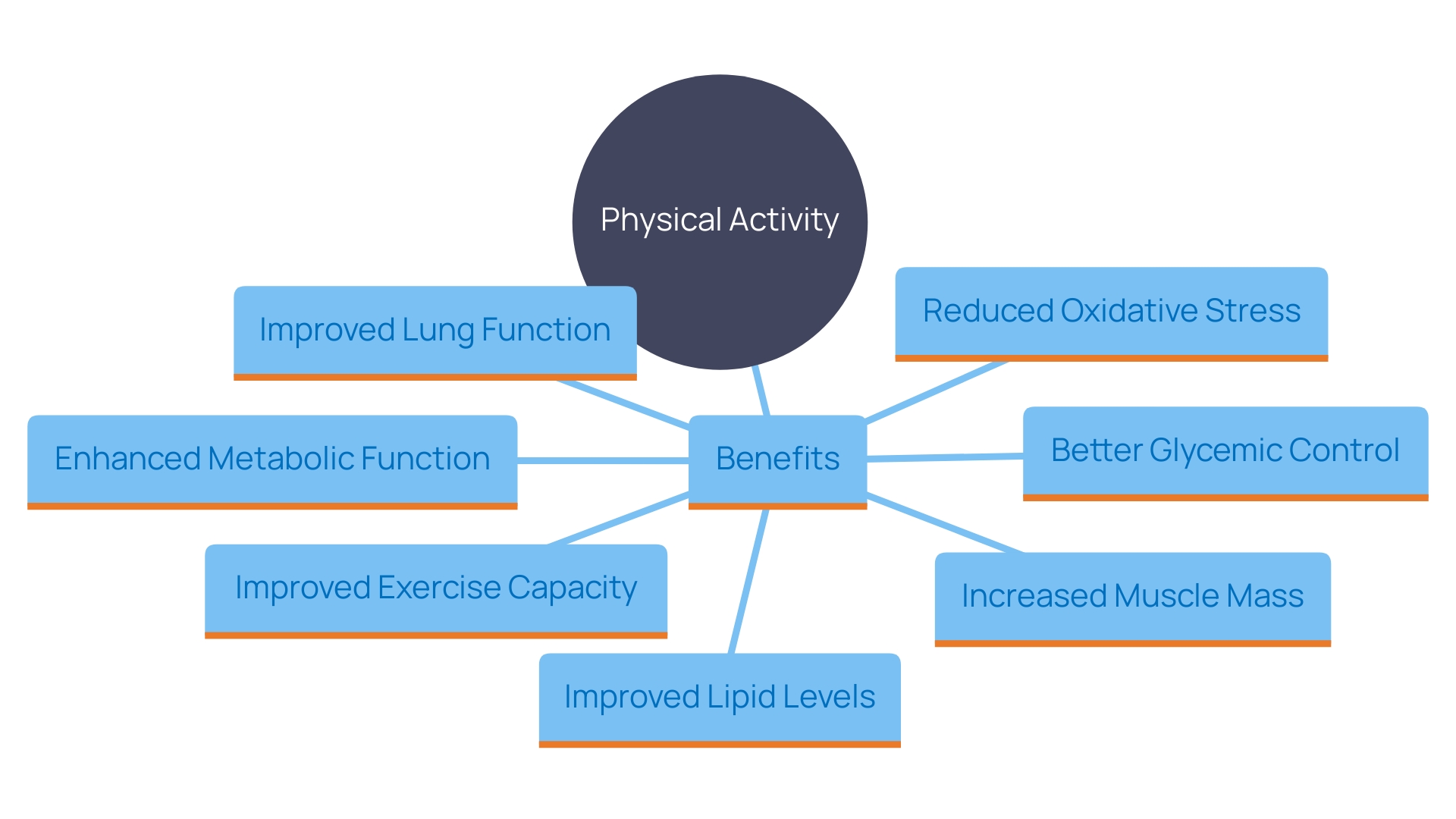
Stress Reduction and Mindfulness
Yoga is a powerful tool for stress reduction, largely due to its focus on breath work and meditation. Participating in mindfulness practices helps individuals become more aware of their thoughts, emotions, and physical sensations, promoting emotional regulation and reducing anxiety and depression. This mindful approach directly impacts the production of cortisol, the stress hormone closely associated with weight gain.
A recent study highlighted in the Journal of Clinical Psychiatry found that regular hot exercise practice significantly reduced symptoms of depression in half of the participants with moderate to severe depression. The research included 80 individuals who maintained their ongoing therapies, including antidepressants, while taking part in heated exercise sessions twice a week for eight weeks. These findings highlight the potential of this practice to serve as a complementary therapy for mental health issues.
Furthermore, engaging in this practice promotes a positive mindset, which is essential in handling emotional triggers that frequently result in overeating. The synergistic connection between this physical practice and mental well-being is well-documented, with numerous studies validating the reduction of stress and anxiety through consistent practice. By incorporating this practice into daily routines, individuals can attain a more balanced and healthy lifestyle, enhancing both physical and mental health.
Muscle Building and Metabolism
Participating in this practice not only develops slim body tissue but also improves overall physical ability and respiratory function. The strength needed to maintain various poses engages multiple groups, leading to toning and growth. According to a systematic review of 25 yoga trials with 2170 participants, yoga significantly enhanced strength, flexibility, and balance, while decreasing fatigue and pain. This is crucial as lean tissue burns more calories at rest compared to fat, significantly enhancing overall caloric expenditure. Furthermore, increased strength mass is associated with lower mortality rates, reduced body fat, and a decreased likelihood of diabetes. The more muscle you have, the more calories you burn, even at rest, allowing you to eat more and get more nutrients from your food. This makes this practice an excellent choice for holistic health and well-being.
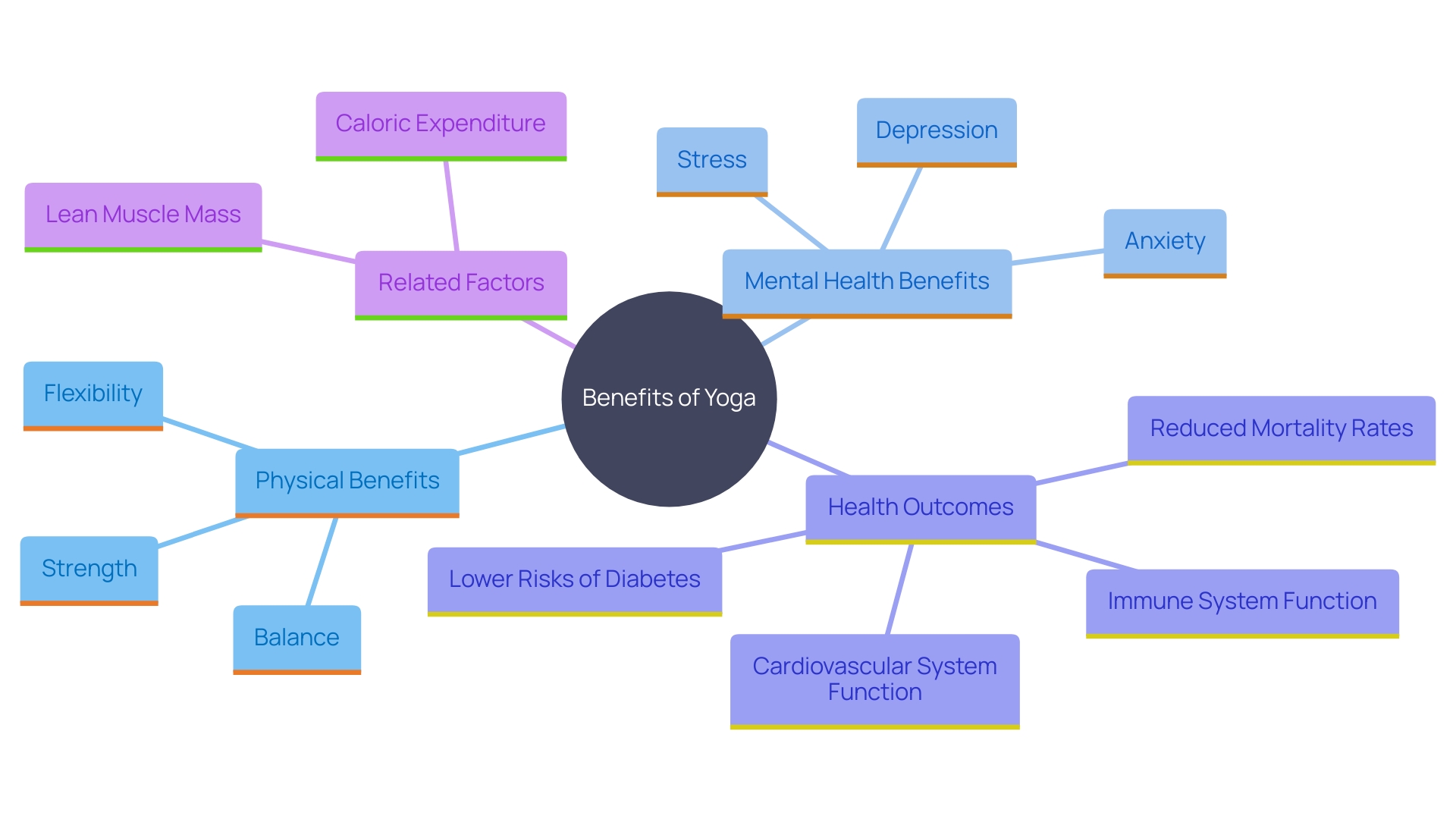
Incorporating Yoga into Your Weight Loss Plan
To effectively incorporate this practice into your weight loss plan, dedicate time several times a week for training. Research highlights that this practice can enhance exercise capacity and lung function, making it an excellent addition to your routine. Combining this practice with other types of exercise, such as cardio or strength training, can enhance outcomes. A balanced diet, providing necessary nutrients, is essential for supporting your weight loss goals. Research has indicated that the blend of physical exercise and a suitable diet enhances overall wellness by boosting flexibility, strength, mental clarity, and lowering stress. Remember, consistency is key, and finding joy in your yoga practice will make it a sustainable part of your lifestyle.
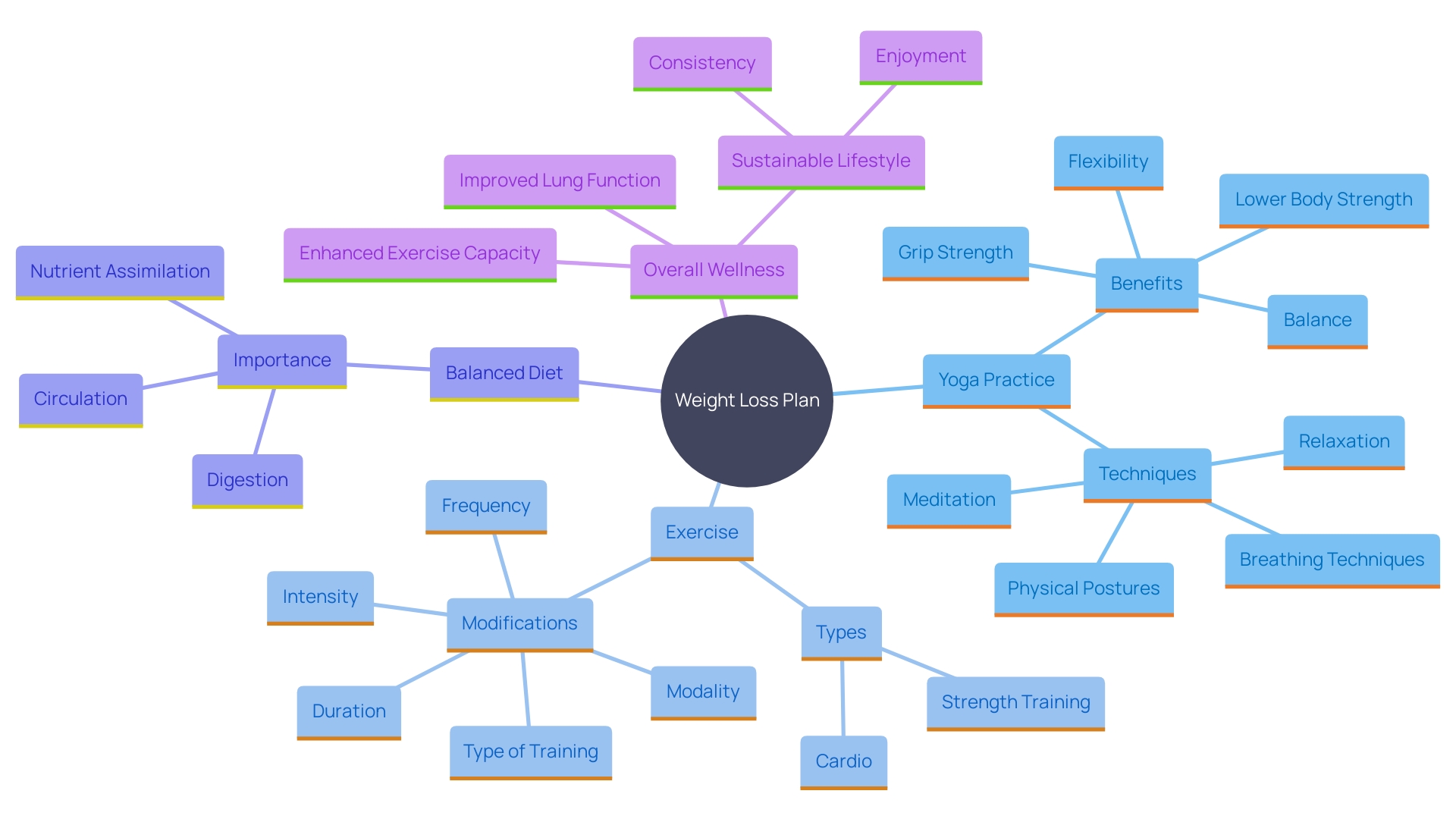
Conclusion
Incorporating yoga into a weight loss regimen presents a holistic approach that transcends traditional exercise and dieting methods. The multifaceted benefits of yoga—ranging from enhanced physical fitness and improved metabolic function to stress reduction and emotional well-being—underscore its role as a powerful ally in the journey toward achieving and maintaining a healthy weight. By fostering a deeper connection between the body and mind, yoga promotes mindfulness, which can lead to healthier lifestyle choices and eating habits.
Exploring various styles of yoga, such as Vinyasa, Power, Hatha, and Ashtanga, allows individuals to tailor their practice to meet their specific needs and preferences. Each style offers unique benefits, ensuring that the practice remains engaging while maximizing physical and mental health outcomes. Incorporating targeted poses like Plank, Boat Pose, and Twisted Chair can further enhance core strength and overall wellness, showcasing the versatility of yoga in supporting weight management.
The evidence supporting yoga's effectiveness in reducing stress and anxiety is compelling. By actively lowering cortisol levels and promoting emotional regulation, yoga helps mitigate the emotional triggers that often lead to overeating. This synergy between mental well-being and physical health emphasizes the importance of mindfulness in achieving sustainable weight loss.
Ultimately, integrating yoga into daily routines not only promotes a toned physique but also cultivates a balanced and harmonious lifestyle that fosters long-term health and wellness.




